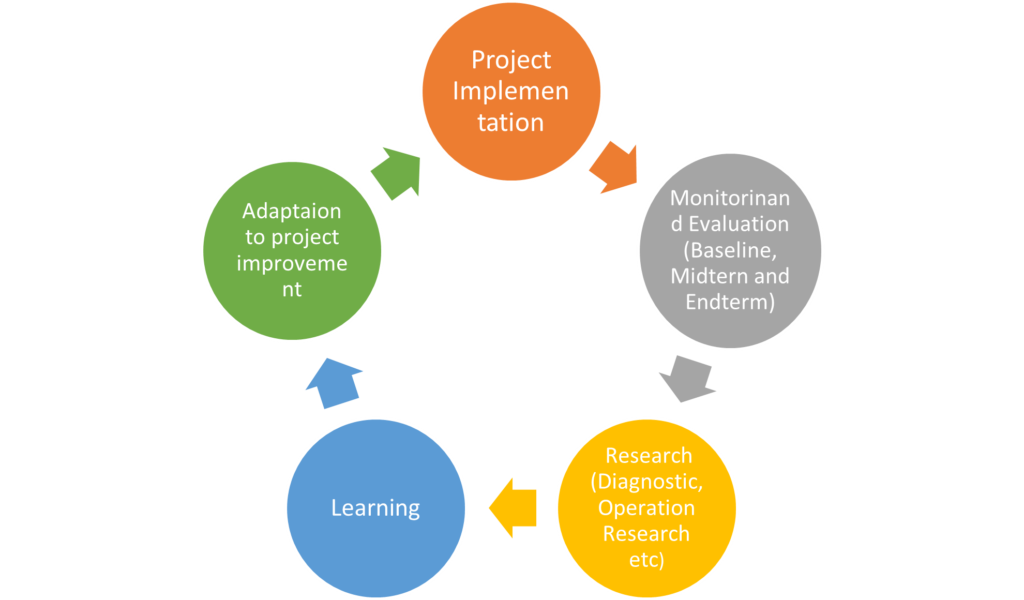Monitoring, Evaluation, Research, and Learning (MERL)

Monitoring, evaluation, and research are critical learning components because they tell implementors about course corrections based on evidence-based decision-making. As a result, a holistic approach to programme evaluation should include an integrated element of monitoring, evaluation, research, and learning. The method of exercise is sometimes called the monitoring, evaluation, research, and learning cycle (MERL). The MERL cycle is a key aspect of the process of project execution. The implementation cycle addresses the many demands of the implementation process, such as monitoring progress and building project through research. Furthermore, it also includes analyzing the impact of intervention through evaluation and disseminating results internally and externally through a learning mechanism.
Typically, the cycle begins with a feasibility study and requires assessment to determine the nature of the need or issue where the project will be executed. Once a need is identified, it is necessary to study its underlying causes and the impact on communities. Occasionally, you may also undertake a gap assessment exercise to determine the extent to which gaps exist throughout the community. After doing a need assessment and/or gap analysis, you may design the project to identify and pick the most relevant intervention to accomplish the aim.

MERL Cycle
Since project implementation is a constant and continuing activity, MERL will likewise be an ongoing exercise, including concurrent monitoring throughout the project. Further, during implementation, the research shall be conducted to support the implementation. Additionally, as part of the assessment cycle, a baseline should be established to provide the reference point or baseline for monitoring outcomes. If resources permit, the baseline may be followed by a midterm review to monitor progress toward the desired objective and allow for mid-course adjustment. Following the completion of the project, a final assessment should be undertaken. Though learning should be included throughout the learning cycle, it is critical to analyze the change brought about by the project and make decisions on scale-up and sustainability as circumstances dictate.
It is critical to develop a MERL strategy for this design to incorporate a MERL cycle efficiently. The MERL plan must explicitly define the precise tasks and activities included in the plan. The strategy must explicitly define MERL activities, including establishing a baseline, performing regular monitoring, conducting research, mid-term and final assessments, and determining how to incorporate learning at different cycle points to enhance project performance.
Kultar Singh – Chief Executive Officer, Sambodhi
Leave a Reply
You must be logged in to post a comment.
